
This article is more than
2 year oldPalestinian militant group Hamas has launched a large-scale surprise attack against Israel, which they infiltrated by air, sea and land, firing thousands of rockets from Gaza and sending fighters to kill or abduct people.
At least 230 people have been killed in the conflict’s bloodiest escalation in years which also left 1697 more wounded on both sides, according to the Hamas-run Gazan Health Ministry.
Just moments earlier, officials in Israel confirmed that the official death toll in the country was at least 200, with another 1,100 people injured.
Israel’s Prime Minister Benjamin Netanyahu declared on Saturday that the country is now “at war” with Palestinian militant group Hamas.
“We are at war, not in an operation or in rounds, but at war,” he said in a statement, adding Hamas had launched a “murderous surprise attack” on Israel and its people.
“Hamas opened the gates of hell on the Gaza Strip, Hamas made the decision and Hamas will bear the responsibility and pay the price,” Israel’s Major General Ghasan Alyan said in a chilling warning.
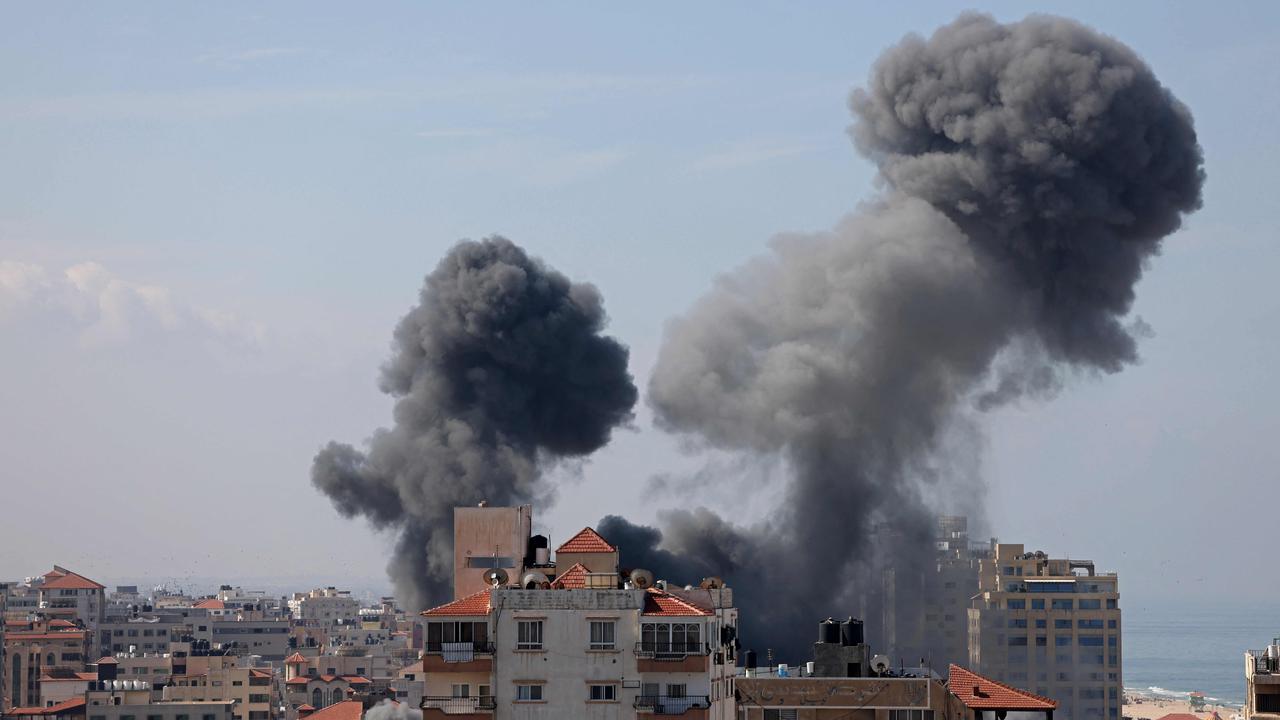
The Israeli military rapidly mobilized tens of thousands of reservists and said fighter jets are carrying out air strikes on Hamas sites in Gaza, and that it has already hit 17 Hamas military compounds.
“I have ordered an extensive mobilisation of reserves and that we return fire of a magnitude that the enemy has not known. The enemy will pay an unprecedented price,” Netanyahu said.
.Netanyahu has invited opposition leaders - Yair Lapid and Benny Gantz - to form an emergency national government, according to a statement from his party Likud.
“A short while ago, I met with Prime Minister Netanyahu,” Lapid said in a statement.
“I told him that in this emergency situation I’m willing to form an emergency, narrow, professional government with him. Netanyahu knows that with the current extreme and dysfunctional security cabinet, he can’t manage a war.”
Leaders around the world condemned the brutal Hamas attacks, but also called for calm and restraint as the violence between the two countries escalated. US President Joe Biden spoke to Netanyahu and offered “all appropriate means of support.”
Prime Minister Benjamin Netanyahu:
— Prime Minister of Israel (@IsraeliPM) October 7, 2023
"Citizens of Israel,
We are at war, not in an operation or in rounds, but at war. This morning, Hamas launched a murderous surprise attack against the State of Israel and its citizens. We have been in this since the early morning hours. pic.twitter.com/C7YQUviItR
Hamas has released images of several Israelis taken captive, and Israel army spokesman Daniel Hagari confirmed that “there are kidnapped soldiers and civilians. I can’t give figures about them at the moment. It’s a war crime committed by Hamas and they will pay the price.”
Israeli military forces have launched operation “Iron Swords” in response to the deadly invasion after thousands of rockets rained down in the cities of Tel Aviv, Jerusalem and Sderot surprise dawn attack from the blockaded Gaza Strip. The death toll is expected to drastically rise.
Violence between Israel and the Palestinians has been surging for almost two years, with fatalities in the occupied West Bank hitting a scale not seen in years.
“As of 13:00 (9pm AEDT), Magen David Adom teams have pronounced 22 victims deceased. They have also treated hundreds of further victims,” the Magen David Adom emergency medical services said in a statement.
Israel’s Defence Minister Yoav Gallant also said earlier Hamas had launched a “war” against Israel.
“Hamas has made a grave mistake this morning and launched a war against the State of Israel,” Gallant said in a statement.
“IDF troops (Israeli army) are fighting against the enemy at every location.”
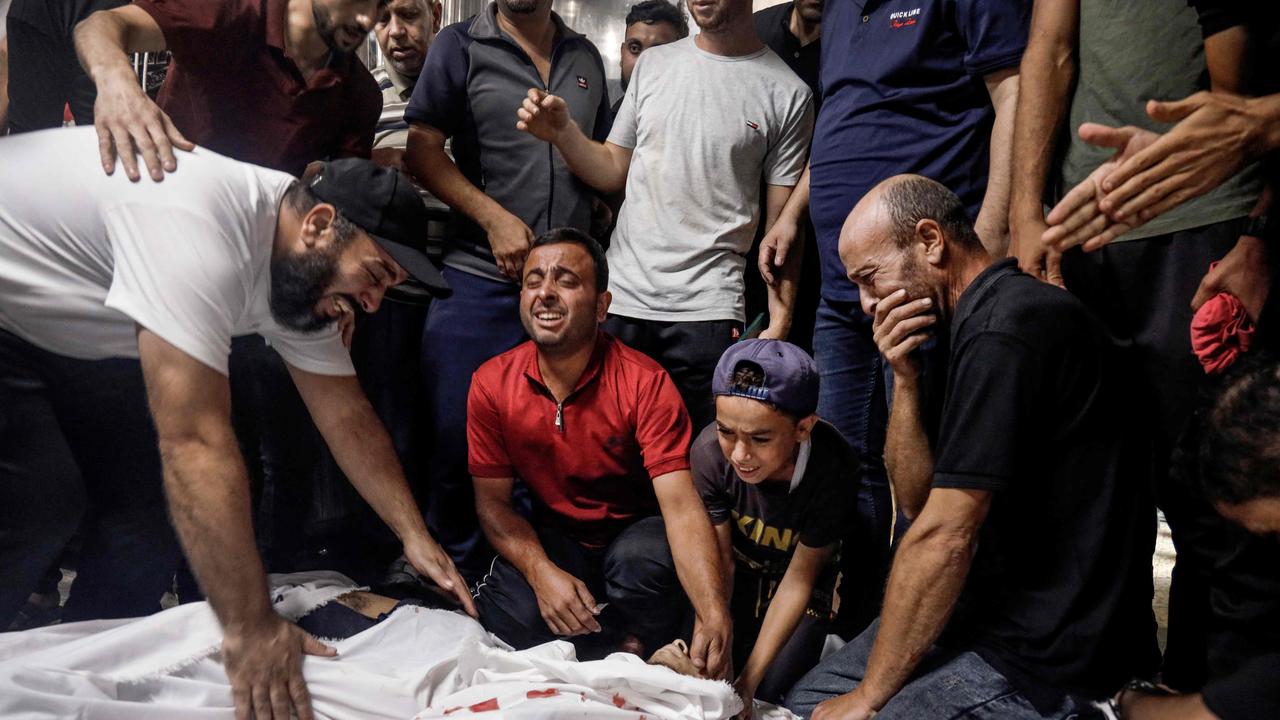
The armed wing of Hamas claimed its militants had launched more than 5000 rockets.
“We decided to put an end to all the crimes of the occupation (Israel), their time for rampaging without being held accountable is over,” the Ezzedine al-Qassam Brigades said.
“We announce Operation Al-Aqsa Flood and we fired, in the first strike of 20 minutes, more than 5000 rockets.”
Israel’s army spokesman Richard Hecht said the militants conducted a combined raid “which happened through paragliders, through the sea and through the ground.”
“They are shooting at our house. They are trying to break down the door of the safe room,” said one woman sheltering with her two-year-old child while her husband and other residents fought the militants in the streets of Kibbutz Sufa, according to Israeli media.
“Send help, please,” she cried, according to the reports.
Hamas later released a video showing three men captured by its fighters.
Militant infiltration from Gaza, an impoverished enclave home to 2.3 million people, have been rare since Hamas took control in 2007, leading to Israel’s crippling blockade.
Gaza is sealed off from Israel by a militarised border barrier.
The rocket barrage from Gaza – which Hecht said numbered at least 2200 – left cars burning beneath residential buildings in the Israeli city of Ashkelon, about 10 kilometres north of Gaza.
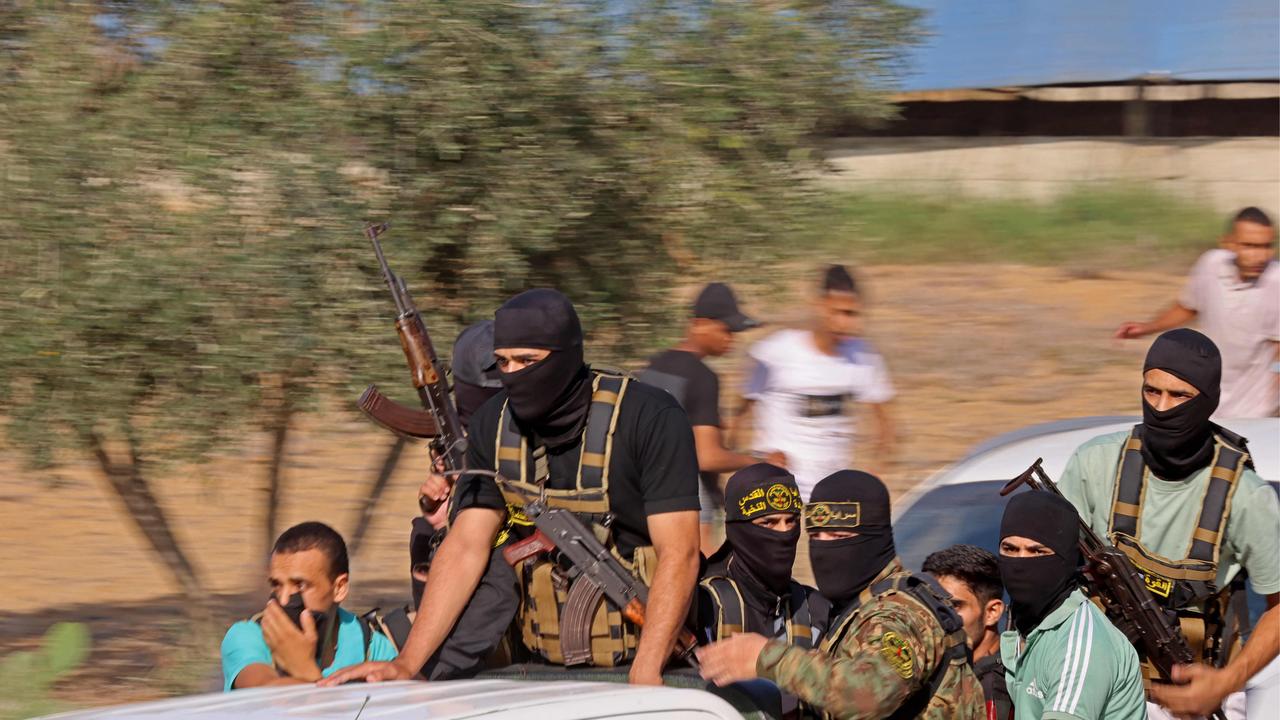
AFP journalists said Israel’s military began air strikes on Gaza, following the rocket barrage from inside the territory which is sealed off from Israel by a militarised border barrier.
“Dozens of IDF fighter jets are currently striking a number of targets belonging to the Hamas terrorist organisation in the Gaza Strip,” the military said.
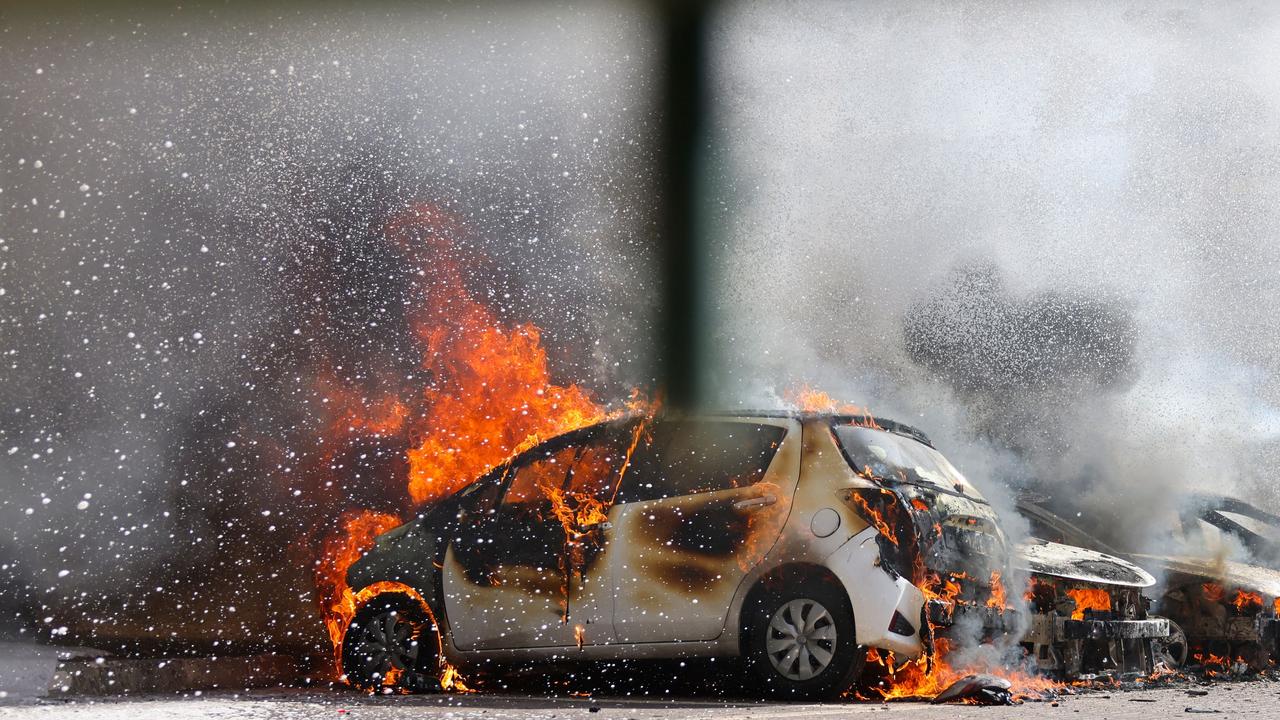
Rockets had earlier streamed across the sky repeatedly after the first launches from multiple locations across the Palestinian territory from 6.30am (2.30pm AEDT), AFP journalists in Gaza City reported.
The armed wing of Hamas, which controls Gaza, said it was behind the aerial assault, saying its militants had launched thousands of rockets and its fighters seized an Israeli tank.
Israel’s army did not immediately comment on the tank claim when contacted by AFP.
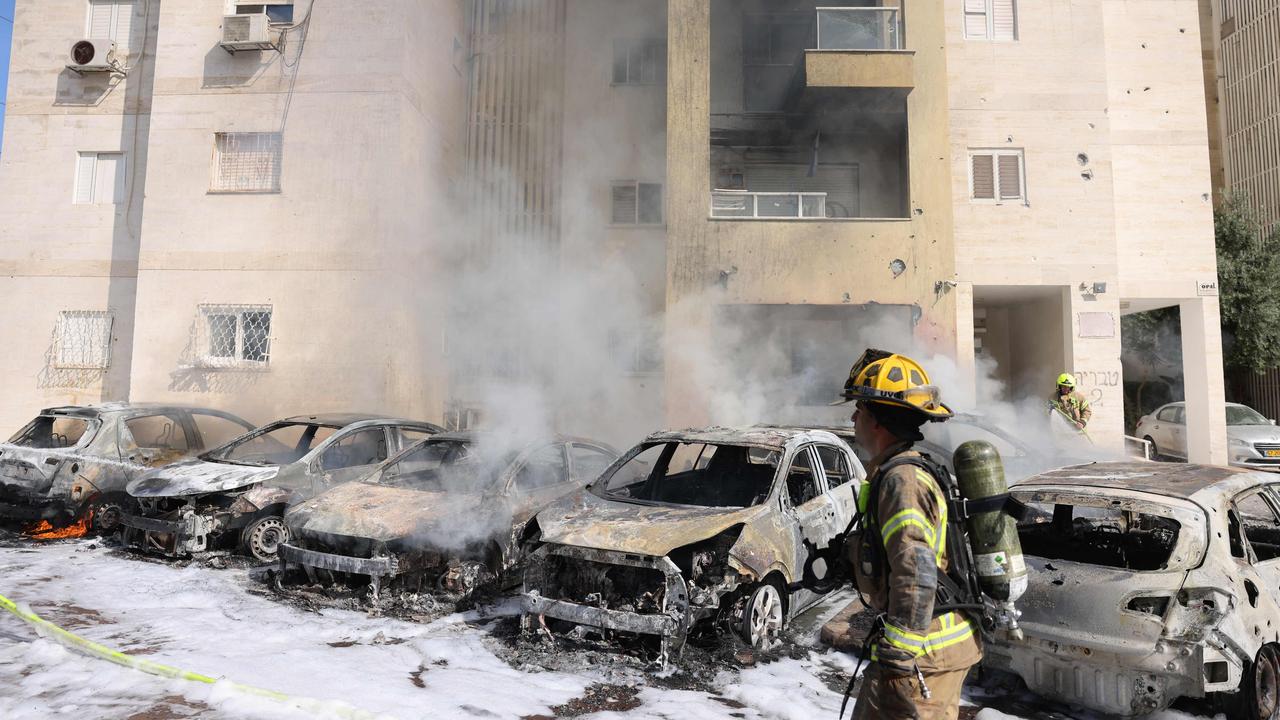
Israeli security chiefs convened over the violence, which occurred on Shabbat and during a Jewish holiday.
Air raid sirens wailed across southern and central Israel, and the army urged people to stay near bomb shelters.
AFP journalists in Jerusalem heard multiple rockets being intercepted by Israeli air defence systems.
Sirens blared across the city on more occasions than in any Gaza conflict in the past three years.
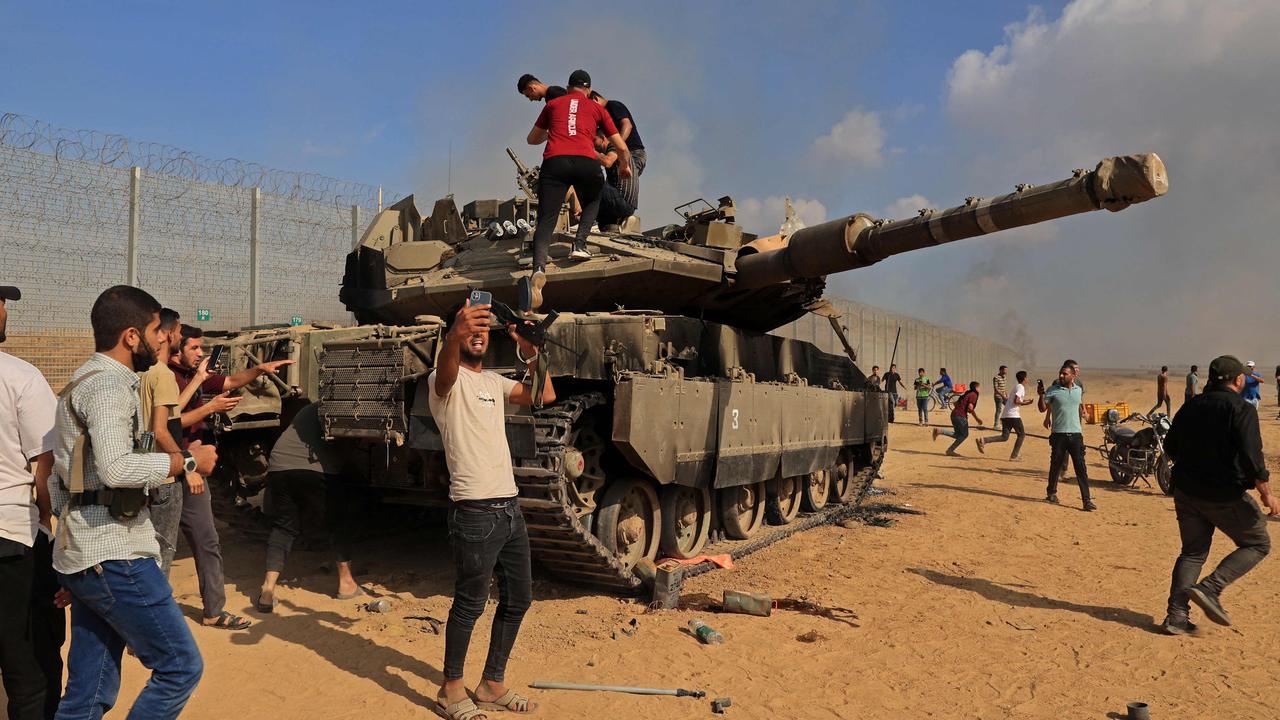
Hundreds of Gazans flee
Hundreds of residents fled their homes in eastern Gaza to move away from the border with Israel, an AFP correspondent said.
Men, women and children carrying blankets and food left their homes, mostly in the northeastern part of the territory, the reporter said.
In Israeli-annexed east Jerusalem, some Palestinian residents cheered and blew their car horns as sirens blared.
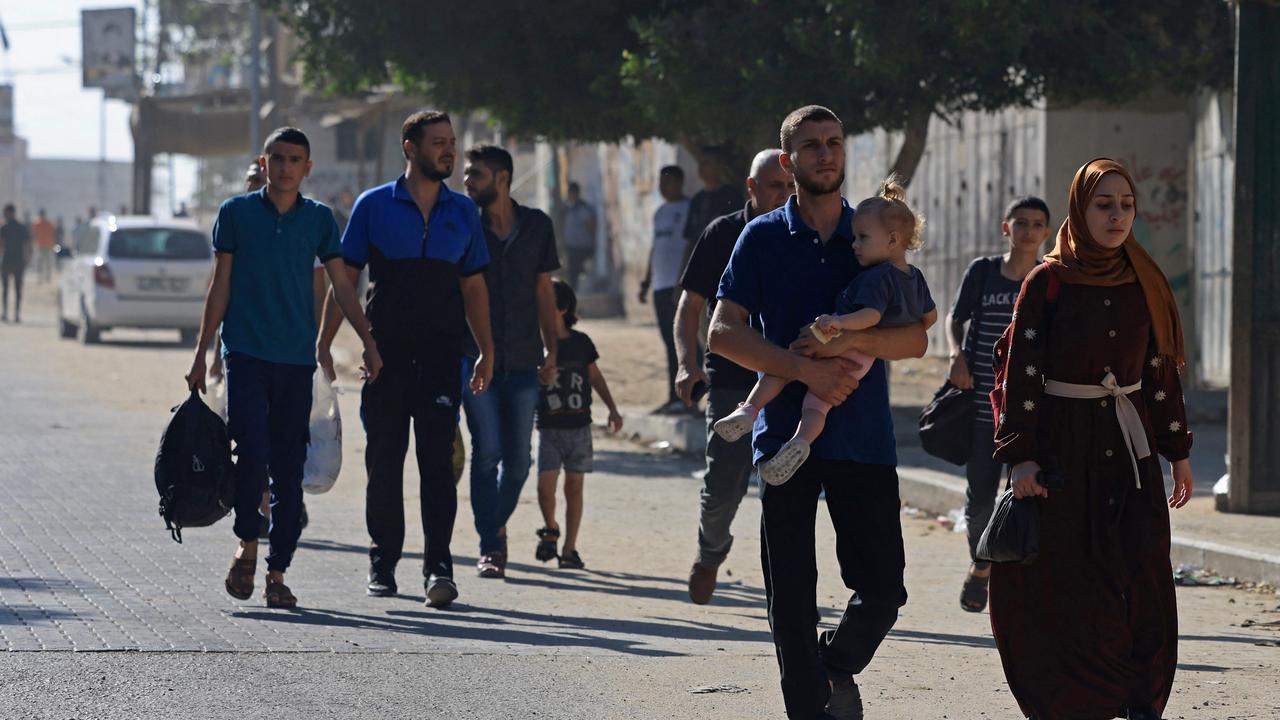
A regional council for Israeli communities northeast of Gaza said its president was killed in an exchange of fire with attackers from Gaza.
Separately, a woman in her 60s was killed “due to a direct hit” in Israel, the Magen David Adom emergency services said.
Fifteen others were wounded, two of them seriously, medics said.
An AFP photographer in the coastal city of Tel Aviv saw a gaping hole in a building, with residents gathered outside.
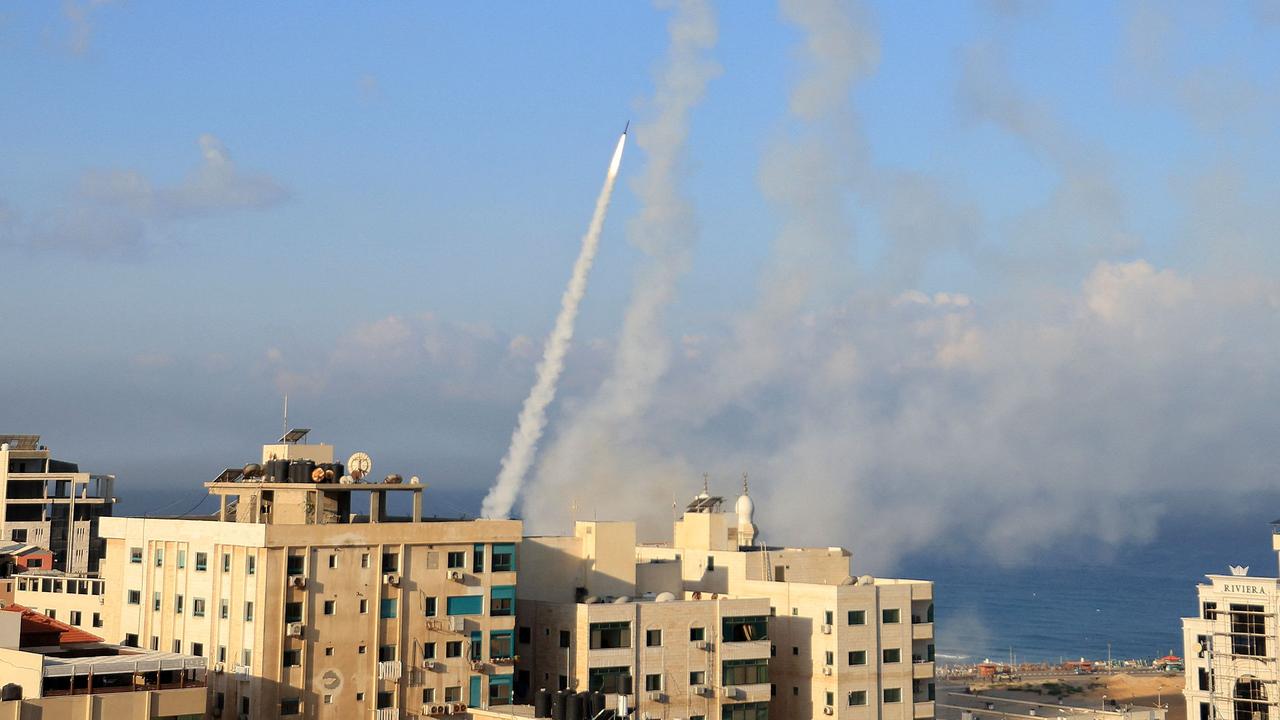
Hamas calls to ‘join battle’
Hamas called on “the resistance fighters in the West Bank” as well as “our Arab and Islamic nations” to join the battle, in a statement posted on Telegram.
The United States condemned the Hamas fire and urged “all sides to refrain from violence and retaliatory attacks.”
“Terror and violence solve nothing,” the US Office of Palestinian Affairs wrote on X, formerly Twitter.
Meanwhile, Lebanon’s powerful Iran-backed Hezbollah praised Hamas for its “heroic operation”.
“Hezbollah congratulates the resisting Palestinian people,” the Lebanese Shiite movement said in a statement, hailing Hamas and its armed wing, the Ezzedine al-Qassam Brigades, for the “large-scale, heroic operation”. Hezbollah said its leadership was following the developments and “in direct contact with the leadership of the Palestinian resistance at home and abroad”.
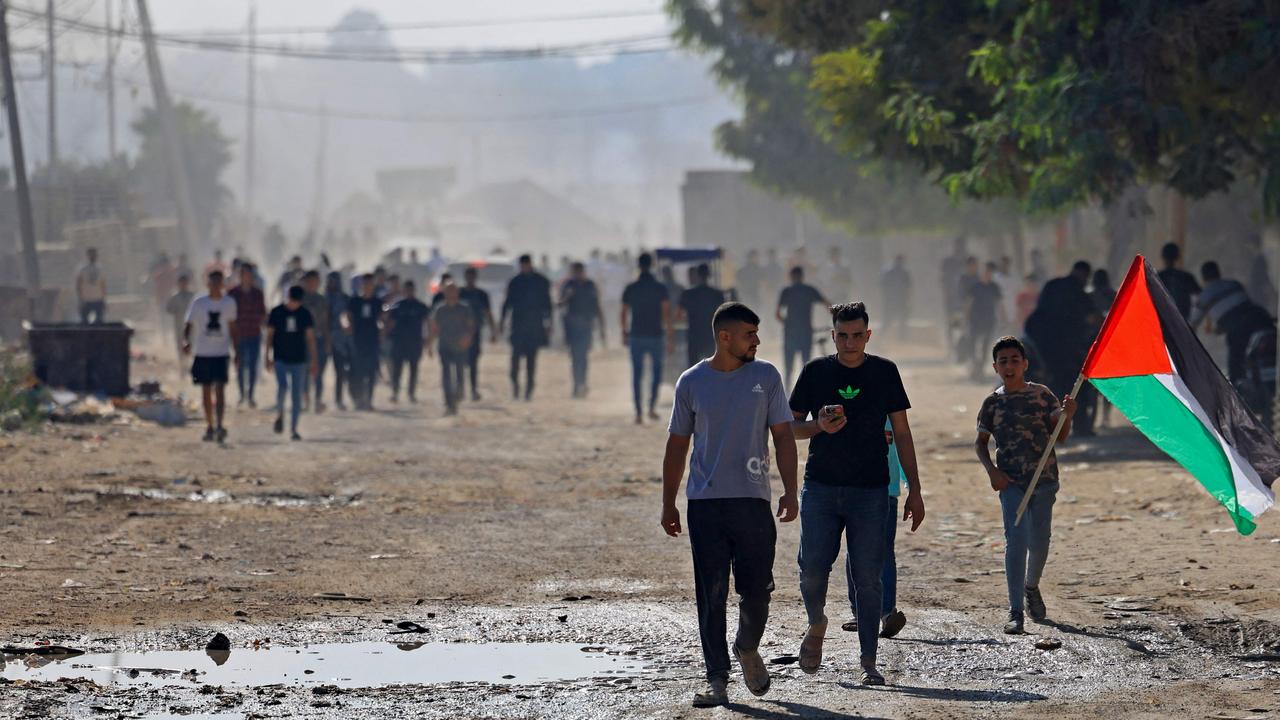
Palestinian militants and Israel have fought several devastating wars since.
The latest violence follows heightened tensions in September, when Israel closed the border to Gazan workers for two weeks.
The shutdown of the crossing came as Palestinian demonstrators along the border burned tyres and threw rocks and petrol bombs at Israeli troops, who responded with tear gas and live bullets.
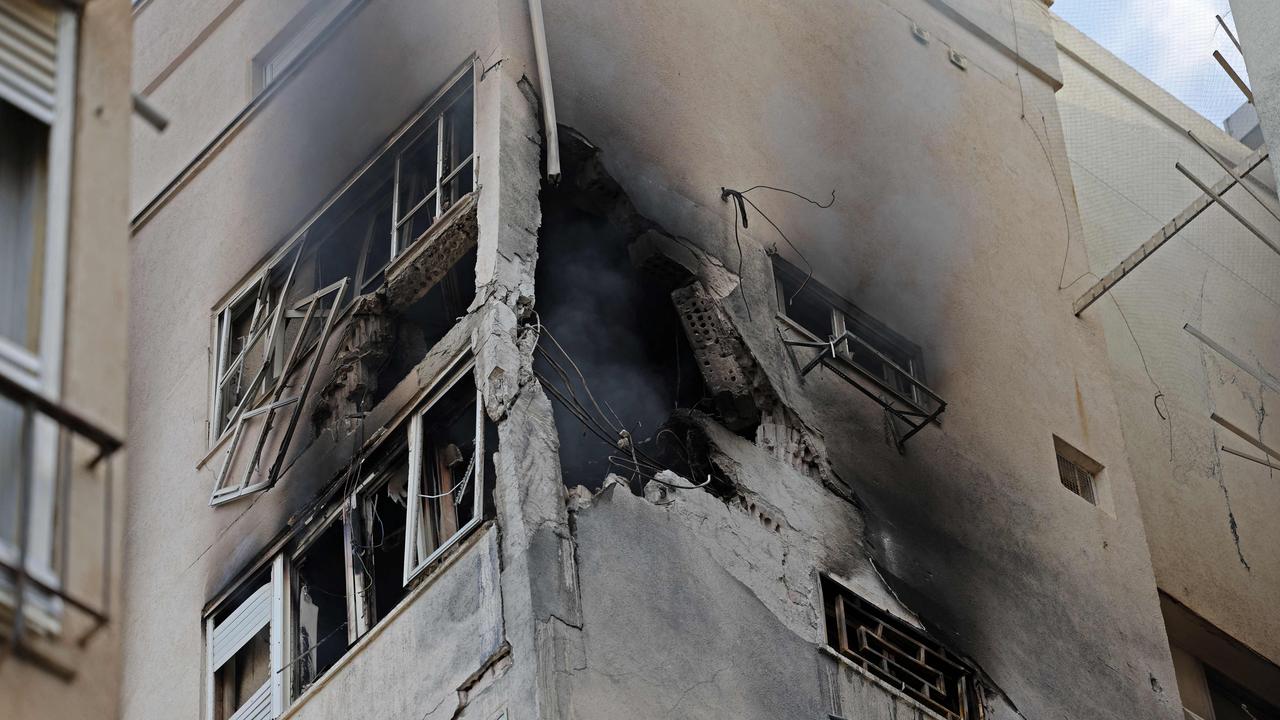
Critics had slammed the border closure as collective punishment against thousands of Palestinian workers, who have far greater earning potential in Israel than Gaza, where unemployment is rife.
Resuming workers’ passage on September 28 had raised hopes of calming the situation in impoverished Gaza, home to 2.3 million people.
In May, an exchange of Israeli air strikes and Gaza rocket fire killed 34 Palestinians and one Israeli.
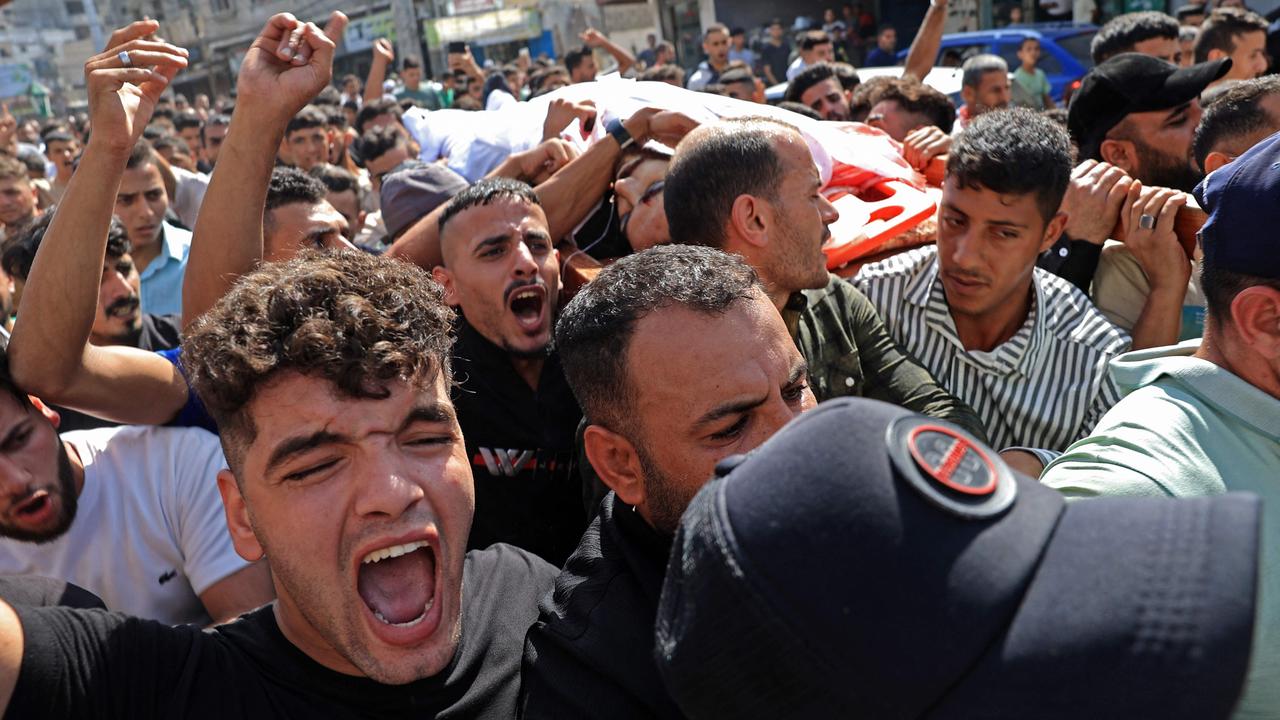
So far this year at least 247 Palestinians, 32 Israelis and two foreigners have been killed in the conflict, including combatants and civilians on both sides, according to Israeli and Palestinian officials.
The vast majority of fatalities have occurred in the West Bank, which has been occupied by Israel since the 1967 Arab-Israeli War.
There has been a rise in army raids, Palestinian attacks targeting Israelis and Israeli settler violence against Palestinians and their property.
The rising violence this year came against the backdrop of divisive judicial reforms introduced by the hard-right government of President Benjamin Netanyahu, who is on trial for corruption charges he denies.
Several far-right ministers in Netanyahu’s cabinet live in West Bank settlements deemed illegal under international law.
\- With AFP